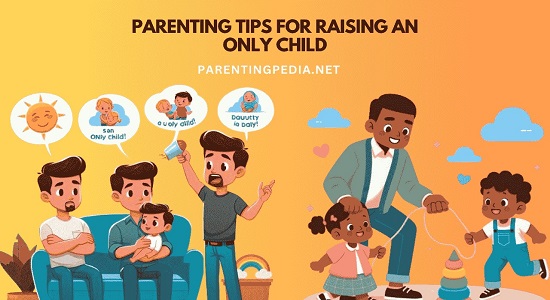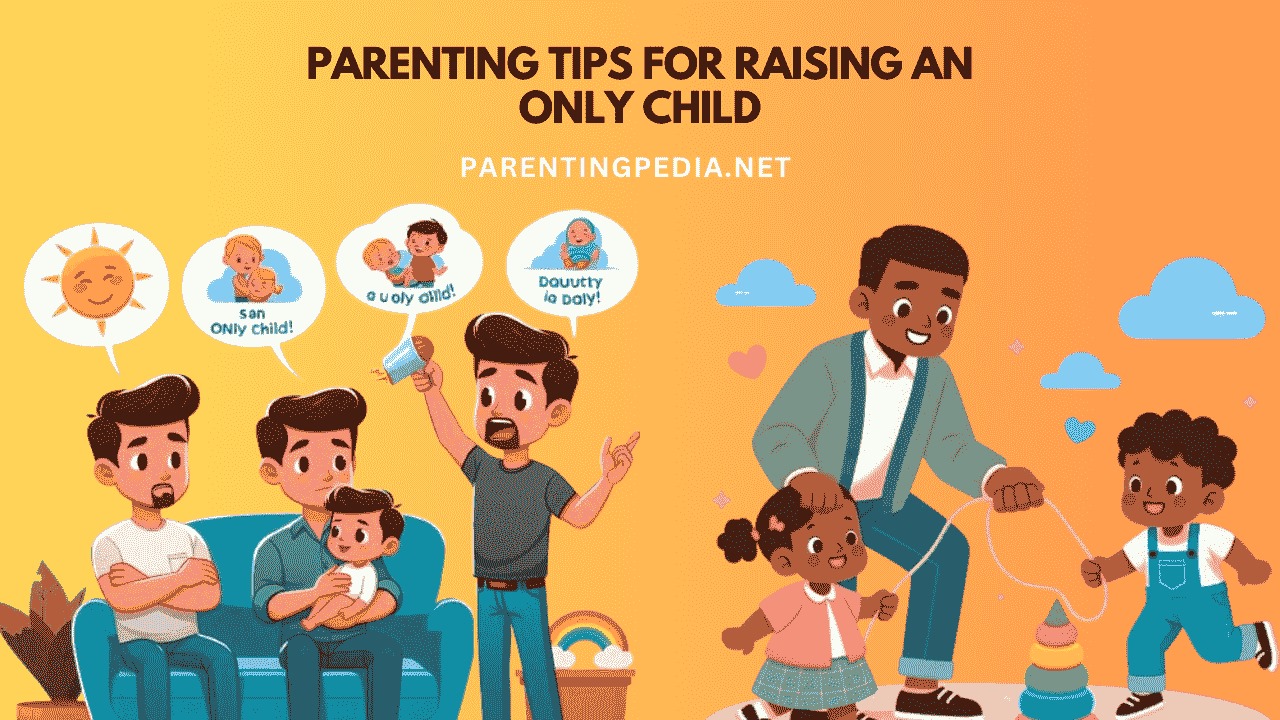Raising an only child comes with unique joys and challenges. While some assume only children might miss out on sibling bonds, they often develop strong, meaningful relationships with parents and other adults, developing maturity, independence, and confidence. As a parent of an only child, it is essential to cultivate a supportive environment that nurtures social skills, emotional intelligence and resilience. Here are some effective tips for raising a well-rounded only child.
Encourage Independence And Self-Reliance
Without siblings, only children can naturally rely more on their parents, which sometimes results in a tendency toward dependency. Encouraging self-reliance from an early age will help them become confident in handling challenges independently. Assign age-appropriate tasks and responsibilities at home, such as organizing their toys, setting the table, or helping with simple chores. These small tasks can build a sense of responsibility and pride in accomplishing things on their own. As they grow, giving them the freedom to make choices such as choosing extracurricular activities or setting their own schedules can enhance decision-making skills and boost self-confidence.
Promote Social Skills In Only Child
One common misconception about single child is that they may lack social skills due to the absence of siblings. However, social skills can be cultivated through quality interactions outside the home. Enroll your child in group activities such as team sports, art classes, or music lessons. Socializing with other children and working in groups can teach them teamwork, patience, and sharing. Arrange play dates, involve them in community activities, or join local clubs where they can connect with peers their age. These experiences help only children learn to develop social skills and form friendships independently.
Avoid Over Protection
Parents of only child often feel an extra sense of responsibility and may become overprotective. However, sheltering your child from every potential harm can hinder their ability to face challenges independently. Allow your child to take safe risks, make mistakes, and learn from them. Whether they are playing on the playground or trying out a new hobby, let them explore without constant supervision. Resist the urge to intervene in minor setbacks, as overcoming small failures builds resilience and teaches valuable lessons about perseverance and problem solving.
Set Clear Boundaries And Expectations
Only children often receive undivided attention from their parents, which can lead to over indulgence. Setting clear boundaries can help avoid entitlement and reinforce a sense of responsibility. Ensure your child understands household rules and consequences for misbehavior, just as they would if they had siblings. Providing consistent guidance helps them respect boundaries and teaches that rules and responsibilities apply to everyone, regardless of family size.
Encourage Emotional Expression And Empathy
Only child may sometimes struggle with managing emotions due to their unique position in the family. Encourage open conversations about feelings and help them develop empathy. Talk to your child about the importance of understanding others’ emotions and perspectives. Role-playing different social scenarios, discussing books or movies that explore emotions are some of great ways to promote empathy in children. The more they practice emotional expression and empathizing with others, the more they will develop compassion, patience, and social awareness.
Model Healthy Relationships
Only child learn a lot about relationships by observing their parents. By demonstrating respect, communication, and compromise in your interactions with others, you set a strong example for your child. This modeling can help them understand how to manage relationships outside the family, such as friendships, partnerships, and professional relationships. For example, showing patience and actively listening when speaking to your child teaches them the importance of respect and communication in all relationships.
Also Read: Positive And Negative Effects Of Digital Media On Children
Support Their Pursuits And Passions
With full attention of parents, an only child can benefit significantly from encouragement in their interests. Nurturing a child’s natural curiosity can lead to fulfilling hobbies and even long-term career interests. Support their passions by exploring different activities together such as art, music, sports, or science clubs until they find something that resonates with them. Praise their achievements and efforts, but avoid pressuring them to excel in everything. This support promotes a love for learning and builds a sense of accomplishment without feeling overburdened.
Teach Problem-Solving And Conflict Resolution
Without siblings, only child might miss out on daily opportunities for conflict resolution, so it is essential to teach these skills explicitly. When they encounter a disagreement with a friend or classmate, help them understand how to communicate their feelings calmly, listen to others’ perspectives, and reach a compromise. Problem-solving activities, such as puzzle games or collaborative projects, can also teach them patience and creativity. Encourage them to work through difficulties rather than stepping in to solve problems for them. This help develops resilience in children and equips them with tools to handle conflicts independently.
Avoid Unnecessary Pressure To Succeed
Only child often experience high expectations from their parents, which can lead to pressure to succeed academically or in extracurricular activities. It is natural to want your child to excel, but avoid setting unrealistic expectations. Support their efforts, celebrate progress, and recognize their individuality. Praise their hard work and resilience rather than focusing on specific outcomes. By emphasizing the value of effort over perfection, you promote a growth mindset, allowing them to approach challenges with confidence and a healthy sense of self-worth.
Make Time For Quality One-On-One Interaction
Since you are the primary focus in their family life, the time you spend together holds even more significance. Quality time helps strengthen your bond and gives your child a sense of security and support. Engage in activities that your child enjoys, from board games to reading together or discussing their day. These moments of connection create a strong foundation of trust and encourage them to openly share their feelings and thoughts.
Expose Them To Diverse Experiences
Only children benefit greatly from diverse experiences that broaden their perspective. Introduce them to different cultures, ideas, and environments to help them become adaptable and open-minded. Travel, explore museums, attend cultural events, or even participate in cooking classes together to expose them to new ideas and experiences. This helps only child appreciate diversity, developing a well-rounded world view that will be invaluable in adulthood.

Conclusion
Raising an only child offers unique opportunities to build a close bond and nurture a well-rounded individual. By promoting independence, developing social skills, encouraging empathy, and providing ample support, parents can help their only child thrive. Emphasizing gratitude, resilience, and open-mindedness equips only children with the skills they need to succeed in relationships, academics, and personal growth. With balanced guidance and encouragement, only children can enjoy fulfilling lives and make meaningful contributions to the world around them.
FAQ
How to parent an only child?
Parenting an only child involves promoting independence, encouraging social interactions, and setting clear boundaries. Support their interests without pressuring them to excel in everything. Teach gratitude, resilience, and empathy, helping them develop strong social skills. Quality one-on-one time and exposure to diverse experiences also enrich their development.
What are the struggles of an only child?
An only child may struggle with loneliness, lacking the companionship and social learning that siblings often provide. They may face high expectations from parents, leading to pressure to succeed. Only children can also experience challenges in handling conflict and sharing, as they are less likely to practice these skills at home, which may impact social interactions.
Remember, the greatest reward of parenting lies in watching
your children soar with love and confidence.
Till then keep smiling and be happy

